August 26, 2013 at 12:28 pm

Fabiana Cabral in 2013
- Years at Boston University: 7 years. Fabiana writes:
I spent four years at BU as an undergrad, but have spent the last three post-graduation years always involved in the university in some capacity (involved with Core’s EnCore group, student theater groups, etc.).
- Current location: Boston, MA, USA.
- Company and Title: Employee at Sargent College, and at BUMC.
- Recent activities: Fabiana writes:
I am currently a graduate student at Boston College studying English literature, with a particular focus on literary translation. I have worked with BU and independent theater groups in Boston for the last five years. I am very active with the Core alumni group EnCore.
- Benefits of the Core: Fabiana writes:
The fields I explored in college, and which my Core experience greatly enriched (history, philosophy, psychology, literature, art) provided me with a variety of tools I could apply in multiple professions. In short, by teaching me how to write, to discuss, and to always look to discover more, the Core taught me how to think; it gave me the investment with the biggest return.
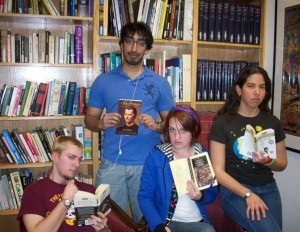
Fabiana (right) with her very serious Core classmates in 2008.
- Hobbies or interests that started at the Core and have continued to become life-long interests: Fabiana writes:
My Core experiences have had a particularly profound influence on my life in that they taught me to think of my personal and academic education holistically. When I realized that I did not want to pursue a career I had felt committed to for most of my adult life (clinical psychology), I was able to reorient myself and turn a lifelong passion (literature) into a concrete career path.
Fabiana adds: Whether you’re a potential Core student, a current one, or an alum who wants to reconnect with the Core, I’m always happy to discuss this great program.
By mdimov
|
Posted in Uncategorized
|
Tagged alumna, alumni, benefits, EnCore, experience, Fabiana Cabral, interest, theater
|
August 26, 2013 at 11:48 am
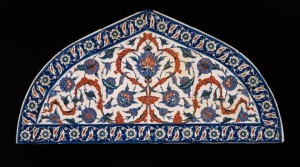
One of the Course Series, The Middle East: A Mosaic of History, Art, and Culture (Oct 2 - Dec 11, 2013)
Throughout the next couple of months, the MFA will be hosting numerous intriguing lectures related to the Museum's special exhibitions and timely art topics. Here is the description from their site:
Speakers include artists and art experts from around the world. Or expand your art horizons with one-day to ten-session offerings designed to complement the latest MFA special exhibitions or explore art-related themes. Sundays feature special events celebrating holidays, music, writers, and technology. The Looking Together program encounters the MFA's collections in small groups led by knowledgeable, enthusiastic instructors that engage in discussion, conversation, and activity.
Core students are encouraged to take advantage of these opportunities in the coming months!
For more information visit the MFA's website.
By mdimov
|
Posted in Uncategorized
|
Tagged Art, courses, event, fun, lectures, MFA, Middle East, Sunday
|
August 26, 2013 at 10:10 am
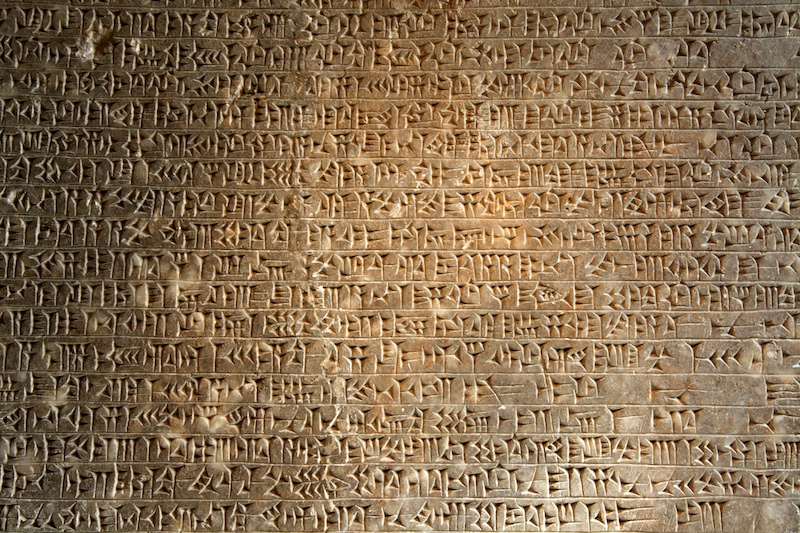
Pertaining to CC101’s study of Gilgamesh and ancient Mesopotamia, is this article on the completed Assyrian tongue. As a dead language that has not been spoken for two millennia, the project was started in 1921 and took 90 years to complete. Dr. Irving Finkel, a contributor to the project, describes it as “a heroic and significant moment in history” and “a miraculous thing”.
The Chicago Assyrian Diction is 21 volumes in length and was compiled by close study of texts written on clay and stone tablets found between the Tigris and Euphrates rivers in what is now Iraq, Syria and Turkey. These tablets included scientific, medical and legal documents, love letters, epic literature like Gilgamesh and messages to the gods.
So why put all of this effort into a language that hasn’t been spoken since the days of Caesar?
The ancient Greeks, Romans and Egyptians are far more prominent both in the public consciousness and in school and university curriculums these days. But in the 19th Century it was Mesopotamia that enthralled - partly because researchers were looking for proof of some of the bible stories, but also because its society was so advanced. "A lot of the history of how people went from being merely human to being civilised, happened in Mesopotamia," says Prof Stolper. All sorts of major advances are thought to have their earliest origins there, and - crucially - Mesopotamia is believed to be among three or four places in the world where writing first emerged. The cuneiform script - used to write both Assyrian and Babylonian, and first used for the Sumerian language - is, according to Dr Finkel, the oldest script in the world, and was an inspiration for its far more famous cousin, hieroglyphics.
The dictionary is over $2000 but it may be downloaded for free here.
By CAS Core Curriculum
|
Posted in Uncategorized
|
Tagged Gilgamesh, mesopotamia
|
August 25, 2013 at 9:20 pm
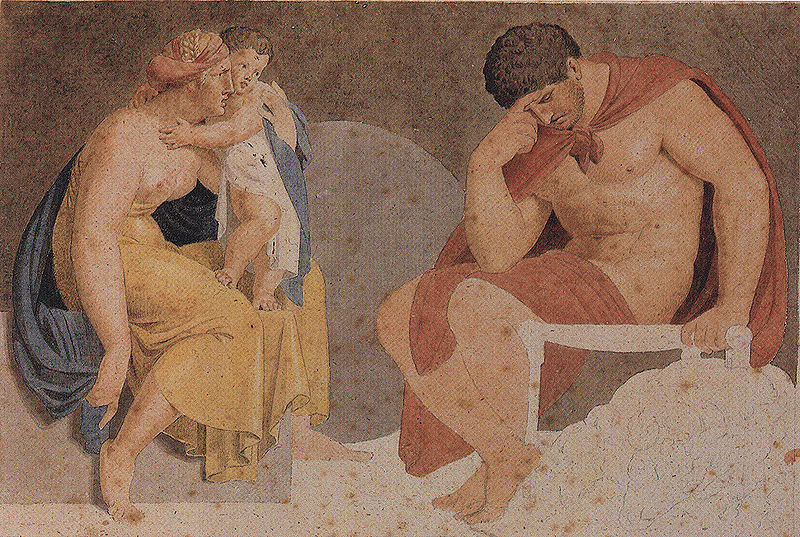
Asmus Jakob Carstens, Sorrowful Ajax with Termessa and Eurysakes, um 1791.
Relating to CC101's study of Greek tragedy, Core humanities Professor Hamill published an article earlier this month for the Theatre Commons' HowlRound on the Trojan War on Boston's stages and it's relation to our understanding of modern warfare. She writes:
Homer’s epic, the Iliad, has become the standard-bearer for the theater’s understanding of war and its aftermath. The playwrights Aeschylus, Sophocles, and Euripides all borrowed and adapted characters from Homer’s epic to engage with the Persian and Peloponnesian wars in their Athenian tragedies. Shakespeare did it in Troilus and Cressida and Marlowe gave a nod to the cause of the war (Helen) in Doctor Faustus with the infamous line, “Was this the face that launched a thousand ships?” It could be argued that every playwright who grapples with representing war on stage writes in the shadow of Homer’s Troy since the intersection of theater and war begins with that war. Recent scholarship even suggests that the battle in the Iliad itself functions as a kind of performance space, which might be why adaptations are so attractive to playwrights. In her recent book, Homer’s Trojan Theater, Jenny Strauss Clay reminds us of the importance of seeing and frames the field of battle in the Iliad as a kind of performance space for a divine audience. Clay designates the space of war—the battlefield—as a staging area that includes “exits and entrances,” as well as divine audience members for some of the greatest performances ever seen in war by heroes like Hector, Ajax, and Achilles.
Read the full article here.
By vpriest
|
Posted in Faculty Publications
|
Tagged CC101, Hamill, Homer
|
August 25, 2013 at 7:00 am

Michel Eyquem de Montaigne (1533 – 1592)
Relating to CC201's study of Montaigne is an article by Liam Julian of The Weekly Standard, discussing the Essays. Here is an extract:
Begun in 1572, the Essays is Montaigne’s 20-year examination of his own life, and not the product of that examination, either, but the examination itself. It contains more than a hundred essays and some half-million words, and discusses idleness, cruelty, experience, philosophy, smells, cannibalism, friendship, education, children, death, sex, happiness, and more through the author’s experiences and ruminations on them. Here Montaigne seeks truth: Que sçais-je?—What do I know?—was his adage. It is through this autobiographical quest for truth, undertaken in part by placing on trial his own actions and beliefs, that Montaigne begins to know himself—and we, his readers, begin to know him, too.
For the full article, visit bit.ly/158V23a.
By CAS Core Curriculum
|
Posted in Uncategorized
|
Tagged CC201, essays, life, Montaigne, Renaissance, truth
|
August 23, 2013 at 10:40 am

Professor of History Diana Wylie (who has been lecturer, seminar leader, and course coordinator for Core in previous years) will be leaving us for a while. Don't get too upset though; she'll be spending that time as a Senior Fulbright Research Scholar in Morocco. Prof Wylie has long been interested in this area of the country, having visited Algeria four times since 2010 to research the work of a historic preservation movement in the city of Oran. Now she is taking this research interest to three cities in Morocco: Casablanca, Tangier, and Meknes. She will investigate historic preservation in these cities, looking at what sites are being preserved and what meaning they have for local people. She aims to illuminate the question of what should be preserved and why.
To know more, click here
In this continually modernizing world, it's nice to know there are some people out there making sure we aren't losing important parts of our past to the rush of the present and future.
By fegoss01
|
Posted in Uncategorized
|
Tagged professor, research
|
August 22, 2013 at 12:24 pm
Every new class adds something unique to Boston University, and no where is that more obvious than the highly discussion based Core classes, where a single different perspective can lead a whole discussion off course (only in the best way possible). What exactly defines the class of 2017 though? Well we can't know, only you guys can tell us! That being said, here are somethings The Mindset List pointed out:
1. Eminem and LL Cool J could show up at parents’ weekend.
2. They are the sharing generation, having shown tendencies to share everything, including possessions, no matter how personal.
21. Spray paint has never been legally sold in Chicago.
30. Americans and Russians have always cooperated better in orbit than on earth.
55. Being selected by Oprah’s Book Club has always read “success.”
We're already waiting to see what mark you're going to leave on BU, class of 2017! If you want to see more ways in which you're already standing out, check out the link here
I'll see you guys soon.
By fegoss01
|
Posted in Uncategorized
|
Tagged freshmen, Leaving a mark, students
|
August 22, 2013 at 9:00 am
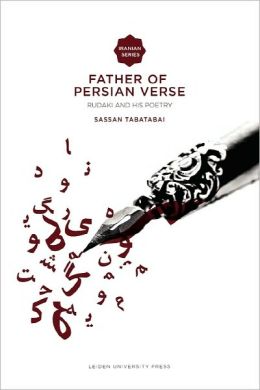 Core lecturer Sassan Tabatabai has released his 2008 book, Father of Songs, as the newly titled Father of Persian Verse. It is an in depth look at the poet Abu 'Abdollâh' Jafar ibn Mohammad Rudaki:
Core lecturer Sassan Tabatabai has released his 2008 book, Father of Songs, as the newly titled Father of Persian Verse. It is an in depth look at the poet Abu 'Abdollâh' Jafar ibn Mohammad Rudaki:
Abu 'Abdollâh' Jafar ibn Mohammad Rudaki (c. 880 CE-941 CE) was a poet to the Samanid court which ruled much of Khorâsân (northeastern Persia) from its seat in Bukhara. He is widely regarded as "the father of Persian poetry, for he was the first major poet to write in New Persian language... This book presents Rudaki as the founder of a new poetic aesthetic, which was adopted by subsequent generations of Persian poets. Rudaki is credited with being the first to write in the rubâi form; and many of the images we first encounter in Rudaki's lines have become staples of Persian poetry.
[From Amazon]
By CAS Core Curriculum
|
Posted in Faculty Publications
|
Tagged Persian, poetry, Rudaki, Tabatabai
|
August 21, 2013 at 1:21 pm

Digital Native, a Creative Commons Attribution Share-Alike (2.0) image from wakingtiger's photostream
A report from Ethnographic Research in Illinois Academic Libraries gives insight into how well "digital native" college students navigate the web and refine their searches. Their findings are not encouraging:
The prevalence of Google in student research is well-documented, but the Illinois researchers found something they did not expect: students were not very good at using Google. They were basically clueless about the logic underlying how the search engine organizes and displays its results. Consequently, the students did not know how to build a search that would return good sources. (For instance, limiting a search to news articles, or querying specific databases such as Google Book Search or Google Scholar.)
Duke and Asher said they were surprised by “the extent to which students appeared to lack even some of the most basic information literacy skills that we assumed they would have mastered in high school.” Even students who were high achievers in high school suffered from these deficiencies, Asher told Inside Higher Ed in an interview.
In other words: Today’s college students might have grown up with the language of the information age, but they do not necessarily know the grammar.
For an article discussing this report, visit bit.ly/pBWZ6x.
By CAS Core Curriculum
|
Posted in Uncategorized
|
Tagged digital, google, library, navigation, research, search
|
August 21, 2013 at 9:00 am
Today's analect relates to CC203's study of the foundation of social sciences:
Propitious circumstances and good laws might succeed in drawing to the legislature of a democratic people men very superior to those who are returned by the Americans to Congress ; but nothing will ever prevent the men of slender abilities who sit there from obtruding themselves with complacency, and in all ways, upon the public.
- Alexis de Tocqueville, Democracy in America (courtesy of google books, p. 112) translated by Henry Reeve, Esq.
By CAS Core Curriculum
|
Posted in Analects
|
Tagged America, Analects, CC203, Congress, de Tocqueville, Elections, social science
|









